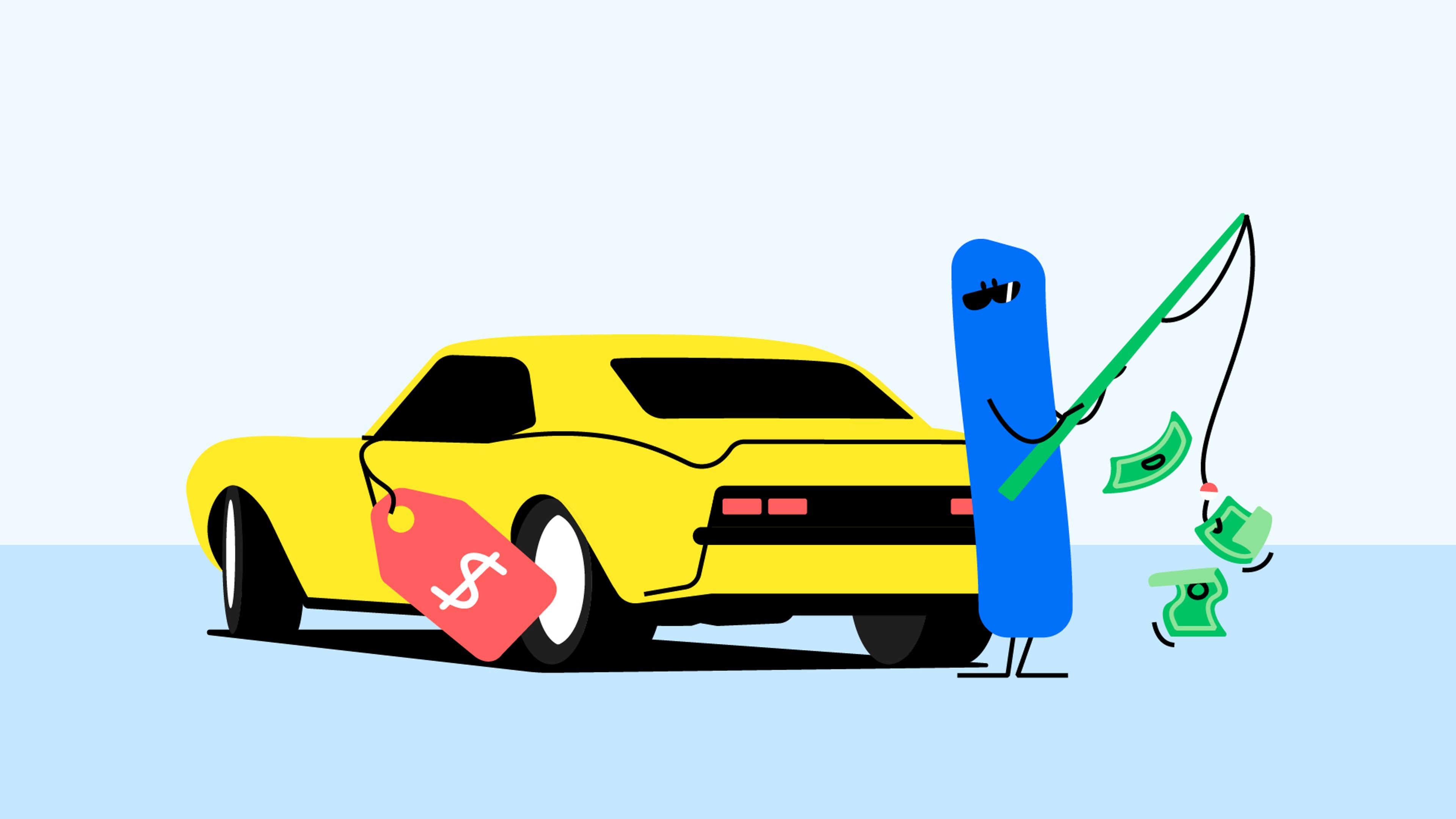19/04/2021
TOP 5 common scams to avoid when buying a used car according to carVertical

There are so many used cars on the market, and finding a perfectly maintained one can be a headache. One of the main problems is that buyers often can’t identify common used car scams.
Indeed, some used cars may seem like a great deal at first glance, but that shiny paintwork and new air freshener could be hiding unpleasant mysteries. By identifying the most common scams, you can avoid huge expenses and other troubles.
Yet to identify them, you first have to know what they are, right?
To find out, we analyzed data from our car history reports, asking a simple question – what are the 5 most popular issues user car salesmen may have been hiding from buyers?
The answer may surprise you! Luckily, if you follow our tips, the surprise won’t come too late.

Used cars have dark secrets
Reveal them all! Just enter a VIN code and click the button:
Methodology: how did we find the most common scams?
To find out what dirty tricks used car salesmen employ to mess with your livelihood, we had to analyze our own data.
- Where is the data from?
Our car history search platform gathers a wealth of information about individual cars, including records from national and private registries, various databases, insurance companies, and stolen vehicle databases in many different countries – info from all these sources was used for this study. - When was the data collected?
We analyzed car history reports from April 2020 to April 2021. - What was the sample size?
More than 1 million car history reports were analyzed. - What countries does the data come from?
This study was conducted by using the data from Croatia, Czech Republic, Bulgaria, Hungary, Estonia, Finland, France, Belgium, Belarus, France, Germany, Italy, Latvia, Lithuania, Poland, Romania, Russia, Ukraine, Serbia, Slovakia, Slovenia, and Sweden.
What are the 5 most popular used car scams?
1. The car is damaged
Our research has found that nearly one-third (31%) of all cars checked using the carVertical VIN decoder had sustained damage.
Why is it dangerous to buy a damaged car?
Major accidents harm the rigidity of a vehicle’s shell. While some professionals bring damaged cars to life very well, shoddy repairs put your life at risk.
For example, steel and aluminum lose strength after bending – a fact you don’t want to test in practice. That’s why bent frame parts should be replaced, not fixed.
Let’s say you found out that the vehicle you are inspecting had an accident. At this point, you should either take a pass on this car or take it to a professional to check whether these damages were appropriately fixed.
How do you avoid buying a damaged car?
When choosing a car, make sure there is no rust in unusual places and all the gaps between body panels are even. If a gap between the panels looks too big, this may indicate damaged structural parts and cheap repairs. Scammers often try to conceal past damages, so customers must inspect the vehicle closely.
Car history reports can reveal how big the impact was, which part of the car was damaged, and show photos of the damaged vehicle.
2. Clocked mileage
Car history reports reveal that every sixth vehicle (16.7%) has had its mileage clocked. Odometer fraud is very common among scammers who import used cars and want to sell them for a bigger profit. Diesel cars are much more likely to have mileage fraud because people who go on frequent long trips are more likely to choose diesel cars.
A single correction of the odometer is a cheap procedure on the black market, but it can inflate a car’s value by 25% or more, especially if the vehicle is considered desirable by lots of people.
Why is clocked mileage a big deal?
Okay, you got that car’s history report and found out the actual mileage is 250,000 miles (400,000 km), but the odometer shows only 130,000 miles (209,000 km). The car looks good, rides great, etc. Should you still keep yourself from buying it?
The first noticeable drawback should be the price. Sellers roll the mileage back to increase a car’s value, so you would probably overpay if the mileage is fake.
At 120,000 miles (193,000 km), cars may still be in great condition – they’ve had their timing belts and chains replaced recently, oil changed, and are ready to double that odometer reading. However, from that point on, depending on the car, any part could die. Sure, the build quality of a vehicle has a huge impact. But various bearings, gaskets, pumps, and the engine itself may be near the end of their lives and draw its last breath at some point.
How do you avoid odometer fraud?
Cars that have had mileage “rollbacks” can be easy to identify. Usually, the wear and tear of the vehicle speaks for itself. If the seats, steering wheel, or gear selector are worn but the mileage appears low, this may be a sign that you should back up from this car and look for another deal.
3. The car is stolen
Theft-related used car scams are the worst. During the last 12 months, we identified several hundred stolen cars, saving considerable time and money for customers.
What happens when you try to register a stolen car?
Usually, the unfortunate new owners have their vehicles confiscated and can’t get the money they paid for the car. If you try to register a stolen vehicle, employees will inform the authorities. In this case, you must give the car back to the original owner. Moreover, the dilemma of getting your money back is entirely yours.
What cars are most likely to be stolen? How do you avoid buying one?
Usually, thieves aim for common cars because they want to sell them as soon as possible afterward. For example, the United States has been suffering from pickup truck thefts, while mid-size SUVs and hybrids are more popular in Europe. If you’re planning on buying a car that’s popular in your country, remember that the chance of theft may be higher.
To avoid buying a stolen car, use a VIN decoder to check the car’s details. Also, try to give cars without registration documents a hard miss.

Check your VIN
Avoid costly problems by checking a vehicle's history. Get a report instantly!
4. The car’s had a value-reducing title
Many people drive ex-police, taxis, or rental cars without even knowing it. Such vehicles tend to hold excessive wear and mileage due to continuous and heavy use in the past.
Throughout the period under investigation, carVertical has identified around 2,000 cars as ex-taxis, police, or rental cars.
Why are these titles a red flag?
Former police, taxis, and rental cars usually go for dirt cheap. No one takes good care of such vehicles as they are meant for work. Police cars have harsh modifications and worn interiors, taxi cab engines keep idling for hours each day, and no one takes good care of rental cars.
Buy a car with such titles when you need something for spare parts or if you’re very short on money. However, the price should be way below the average market value. That’s why checking previous titles before buying a vehicle is vital.
How do you avoid buying an ex-cab?
Old sticker marks and commercial paint jobs talk for themselves, but keen scammers may even repaint the vehicle. History reports offer the best solution to avoid such cars.
BONUS: 5. The price of the car is too low
This isn’t a scam in itself, but we wanted to highlight it nevertheless. You can’t always know why a used car is cheap, but often, it indicates the desire to get rid of a car quickly.
So, even if the temptation is great, you should avoid suspiciously cheap vehicles. If the price feels too good to be true, compare it with similar cars in other used car markets. Cheap vehicles may be clocked, stolen, or have hidden damage, creating the illusion of a great deal.
Steps before buying – how to avoid used car scams?
Scammers always look for legal loopholes to benefit from careless used car buyers. While their creativity is evolving, these good ol’ tips will help you avoid these scams:
- Check the vehicle’s VIN number
- Look for rust, mismatching paint, misaligned body panels, uneven tire wear
- Perform a long test drive and listen for unusual noises
- Take the car for an inspection
It’s very common to get rid of a car instead of facing an expensive issue. Many countries interpret this as illegal activity, but proving scams like these in court is a waste of time and money.
Don’t rush when looking for a used car. Take the proper precautions, and your money will be well-spent.
